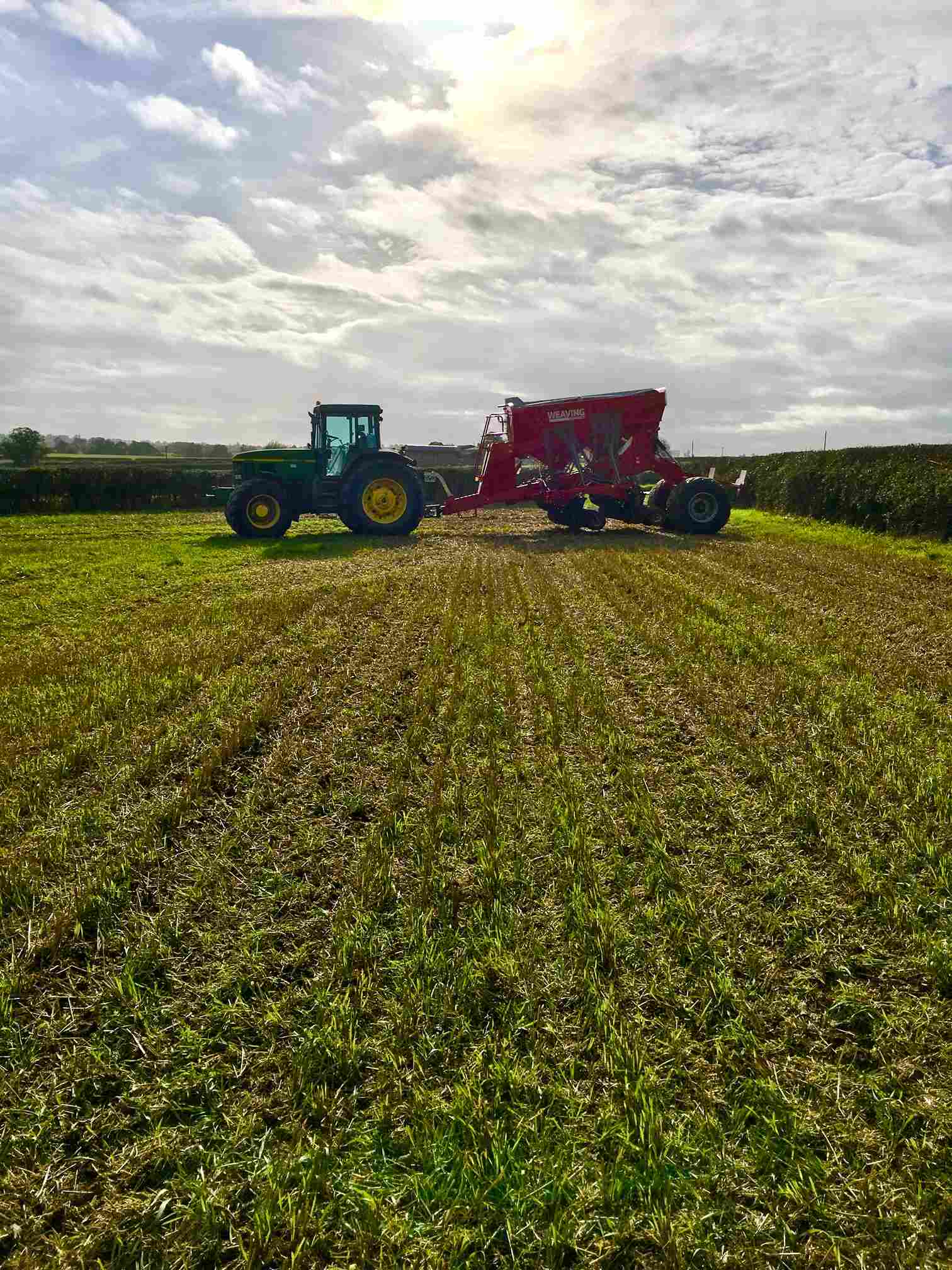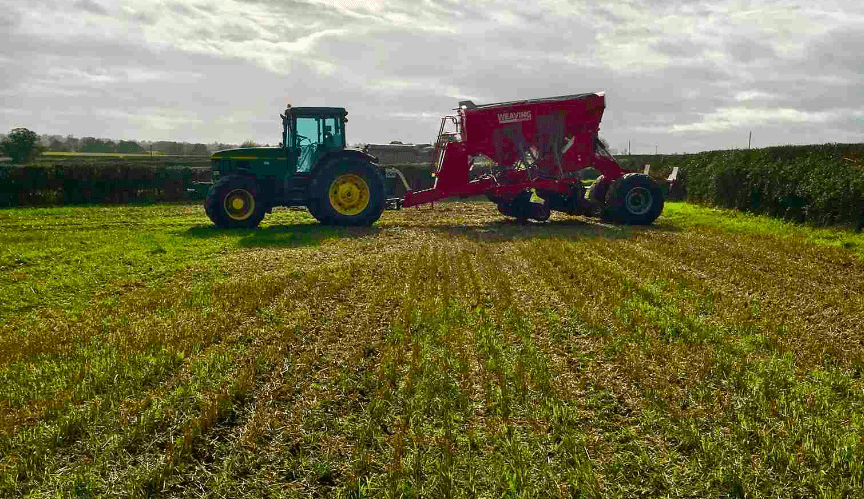During October we should have been busy planting next year’s crops, but for the large part ground conditions have been too wet.
We have managed to plant some fields, but far fewer than we had planned. If we can’t get them growing soon we will have to wait until spring time, and will then need to plant different crop varieties more suited to spring conditions (which will greatly reduce the amount of grain we can produce).
If you have noticed it being extra smelly around the countryside over the last few months, it is because farmers spread a lot of farm yard manure (cattle, pig and poultry muck) back onto the fields in late summer/early autumn. This recycles some of the nutrients removed by the previous crop, feeding the soil and reducing the amount of manufactured fertiliser we use.
Every year we bring some of our grass fields back into crop production, whilst planting some crop fields into grass. This has many benefits, such as; keeping the grass young and productive, adding structure and roots to the soil and providing a break to help reduce crop pests, weeds and diseases.
Muck and grass rotation are two great benefits of having cattle on the farm, and why a mixed system can improve our farm sustainability.
Over the past couple of months the lambs have been fattening well – I tend to take them in small batches to the local abattoir (30 minute drive), they then come back to Pollards Butchers in Newton Longville to be sold or packed into my mixed lamb boxes.
These days’, terms like ‘slaughtered’ and ‘butchered’ have been commandeered by the media and horror films to describe monstrosities, so I hesitate to use them, however, these are actually highly skilled jobs, done in an extremely professional and clean way.
A week on placement at a butchers during my university course made me quickly realise what skilled work it is. And I breathed a sigh of relief when I left there with all my fingers!

